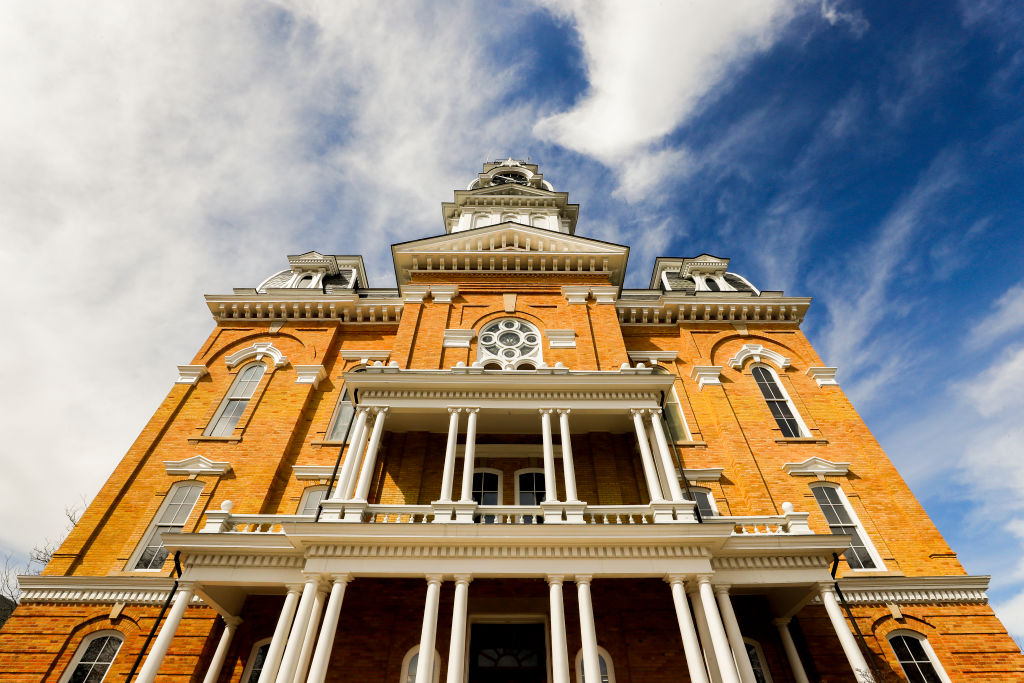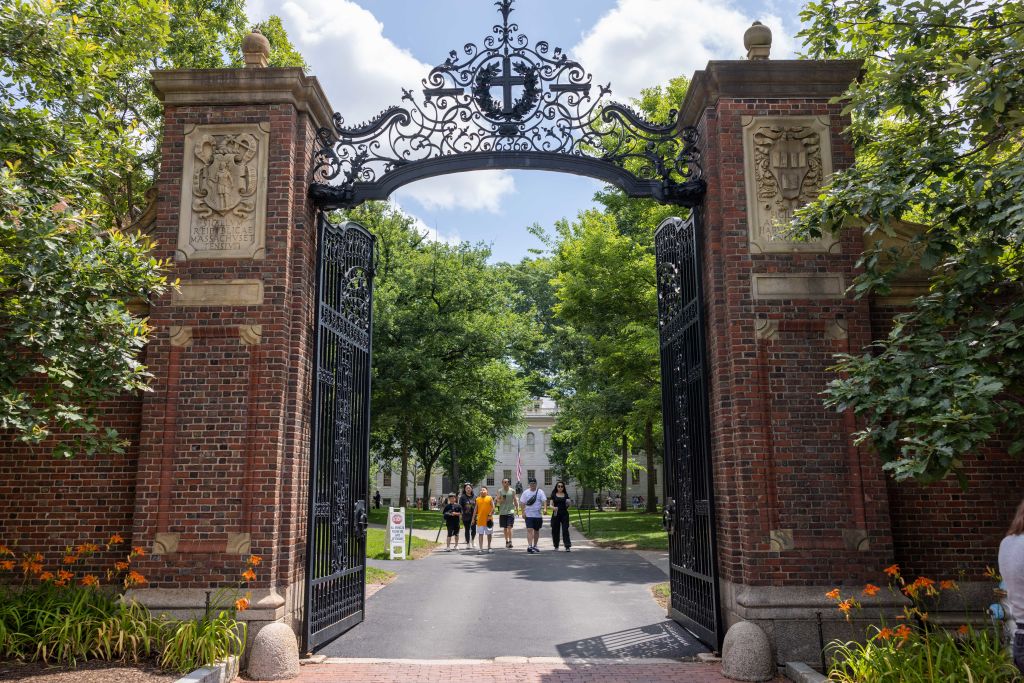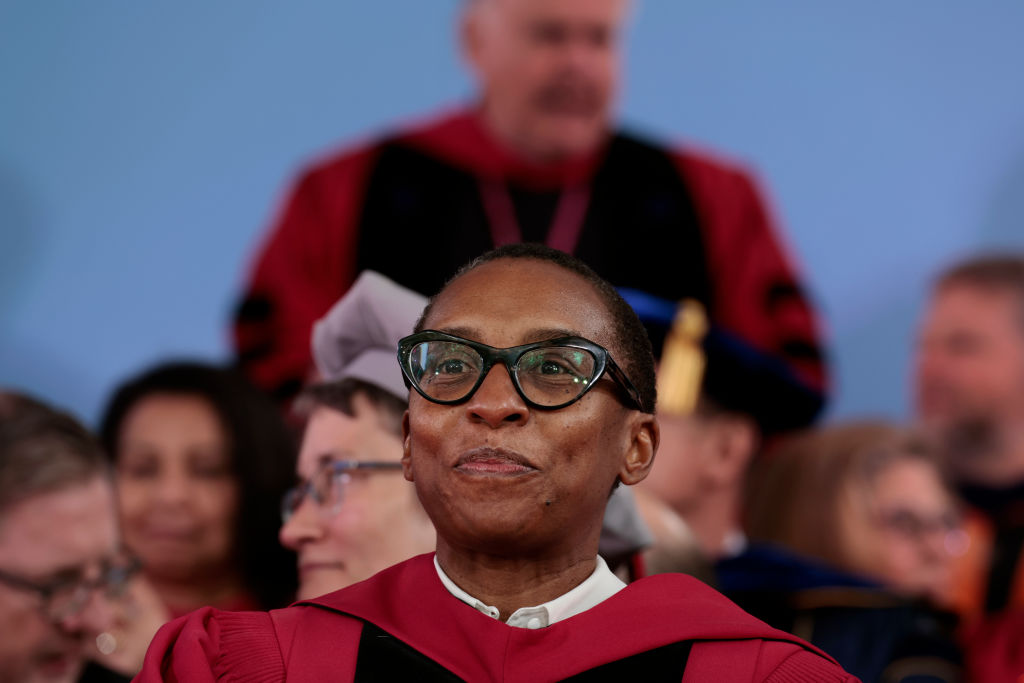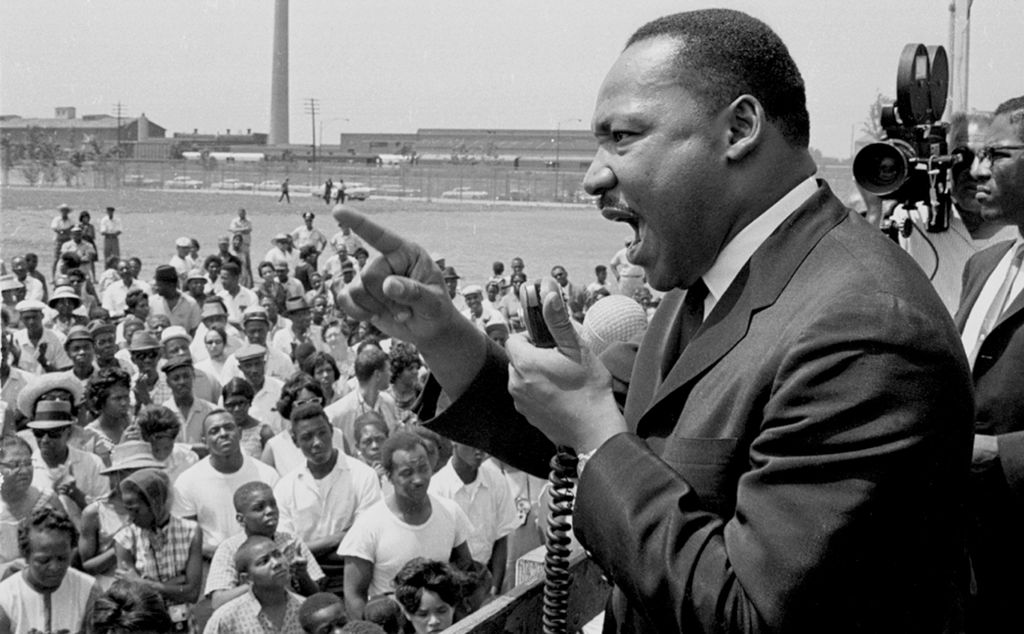Harvard vs. Hillsdale

Competing visions of the purpose of free speech.
Harvard University and Hillsdale College both came under fire recently from the Foundation for Individual Rights (FIRE), which fights for free speech on college campuses. The Foundation ranks Harvard last in its free-speech rankings. Hillsdale scores highly in the rankings, but the Foundation gave it a warning because Hillsdale “holds a certain set of values over a commitment to freedom of speech.” How the institutions defended their views tells us something important about their relative merits.
Harvard believes that colleges exist to advance a “social justice vision.” Its aim, as Princeton Professor Robert George puts it, is to “produce activists and leaders in the cause of social change in a progressive direction.” To that end, former president Claudine Gay made social justice Harvard’s primary focus. She oversaw the school’s racially discriminatory admissions program, and launched initiatives to “dename” Harvard’s buildings and hallways by removing the names and portraits of white men. And when students and scholars—even, or perhaps especially, black scholars—criticized her social justice vision or published research undermining its claims, she silenced them.
Hillsdale, on the other hand, believes that colleges exist to pursue truth. This “classical vision,” George says, aims to “produce students who will be determined truth-seekers and courageous truth-speakers and lifelong learners.” To that end, President Larry Arnn makes the pursuit of truth Hillsdale’s core focus. College, he says, “is where people come together to use their capacities for speech and thought to understand ultimate questions.” Thus, Hillsdale protects students’ rights to “assert and defend any argument you conceive, as long as you do so in a way that is civil, academic, and conducive to thought and deliberation.”
Arnn responded to FIRE’s charges by admitting and defending the Hillsdale bias. “True enough,” he said, but free speech isn’t a college’s purpose. A college’s purpose is the pursuit of truth, so if speech undermines the pursuit of truth, speech may be prohibited on campus.
For Arnn, form, not content, determines what speech is prohibited. Speech that is “screaming, hostile, or babbling” is not allowed. But speech that presents offensive opinions is protected. Hillsdale is right to prohibit uncivil speech, Arnn argues, because civility is a necessary condition for the pursuit of truth. But Hillsdale is also right, he argues, to protect offensive speech because the clash of ideas—iron sharpening iron—is a precondition for the pursuit of truth.
As George puts it: “Academic freedom is not an end in itself, and freedom of speech is not an end in itself. They are conditions for the seeking of truth.” Moreover, the classical vision is honest about its values; Arnn conceded that absolute free speech is not Hillsdale’s ultimate purpose.
Contrast that with Gay’s defense of the social justice vision. She, too, believed that her policies were in the service of the ultimate good, but for her, the ultimate good was the advancement of modern progressive beliefs. These include the claims that America is “systemically racist”; that racial minorities must be protected from “whiteness”; and that if the human mind believes it is attached to the wrong sort of body, then the body, and not the mind, must be changed. But above all else, that, in the words of Professor George, “people must conform to this orthodoxy as a condition of being part of the community.” Thus, the social justice vision holds that speech that conflicts with these values may be prohibited.
Screaming mobs calling for the destruction of Israel are fine, but scholarly papers undercutting progressive narratives about race and policing, like those published by Harvard Professor Roland Fryer, are not. Although Gay has a different rule for prohibiting speech than Arnn does, she agrees with him that free speech is only an instrumentality of another, higher good.
But unlike Arnn who, when challenged, defended the nature of the classical vision honestly, Gay defended the social justice vision dishonestly.
Rather than admit that her vision has an ultimate conception of the good that trumps free speech, she pretended that it did not. Harvard’s view of free speech, she claimed, was the same as black-letter free speech law. Harvard protects all speech if it does not veer into conduct. But this, of course, was not true.
Offered the chance to defend her conception of the good, Gay refused. She chose to confront the charge of hypocrisy rather than the charge of ethical error. Why?
Because even in her intellectual bubble, free as she is from criticism from the classical vision, she must know, if only subconsciously, that her vision is indefensible. She knows that there is truth and that it transcends trendy beliefs. The idea of “my truth,” as she put it, is nonsense. And the thing about the truth is that if you encounter it, you cannot ignore it. Truth is an irresistible force, and when it crashes into the fragile edifices of human belief, it smashes them.
Subjecting oneself to this smashing is painful. Yet there is profound joy in picking up the pieces and rebuilding upon a firmer foundation. To benefit from this process of smashing and rebuilding, you must be willing to confront the possibility that the beliefs you hold most sacred are false. If, like Gay, you are not, then the truth is only terrible; it may smash what you hold dear even as you deny that it offers you the joy of rebuilding.
Gay’s reluctance to defend her conception of the good, therefore, is an act of self-defense. Indeed, much of the social-justice takeover of higher education can be seen this way. You cannot ignore the truth if you meet it, but you can prevent yourself from meeting the truth by corrupting the institutions most committed to it. This is what Gay and other social justice administrators have done with mandatory diversity statements, bias response teams, witch hunts of heterodox faculty, ideological screening of scholarly papers, and Diversity, Equity, and Inclusion commissars. These defenses are meant to keep the pain of the truth at bay because their proponents don’t think that the truth offers anything else.
Arnn and the classical vision are right. Students will find the joy in truth only if their college is singularly focused on its pursuit. It must help them brave the smashing, help them find the right foundation, and provide them with the tools to rebuild on it. Other goods must be instrumentalities of this pursuit, or the truth will be a source of pain rather than joy.
The American Mind presents a range of perspectives. Views are writers’ own and do not necessarily represent those of The Claremont Institute.
The American Mind is a publication of the Claremont Institute, a non-profit 501(c)(3) organization, dedicated to restoring the principles of the American Founding to their rightful, preeminent authority in our national life. Interested in supporting our work? Gifts to the Claremont Institute are tax-deductible.
The injustice collectors pick up another pet indignation.
Dismissing its president’s blatant plagiarism as irrelevant demonstrates the collapse of standards in the era of DEI.
The warning is coming from inside the bubble.
The advance of the Revolution from King to Gay.
Modern ideologues are fundamentally at odds with the nation as a political entity.






